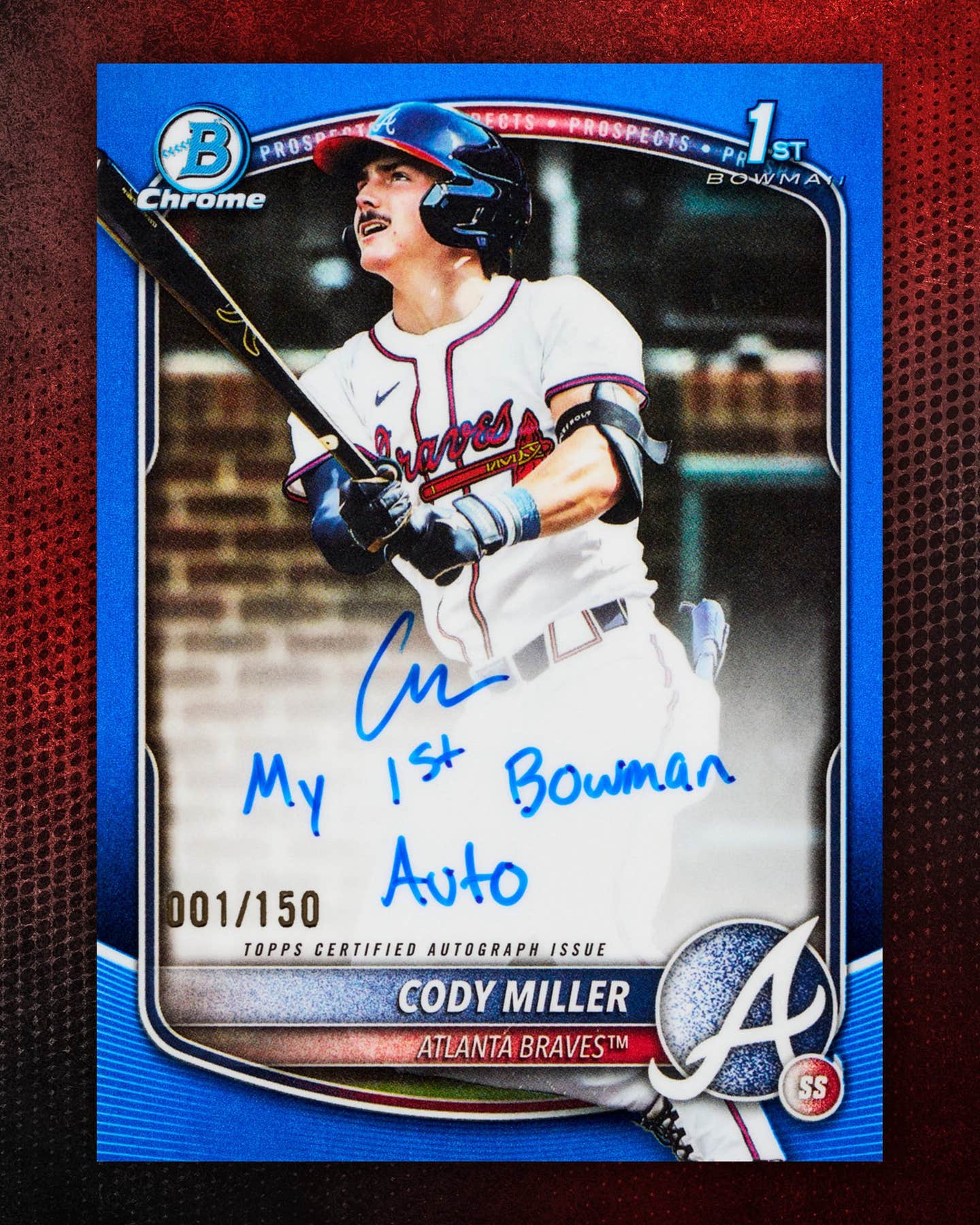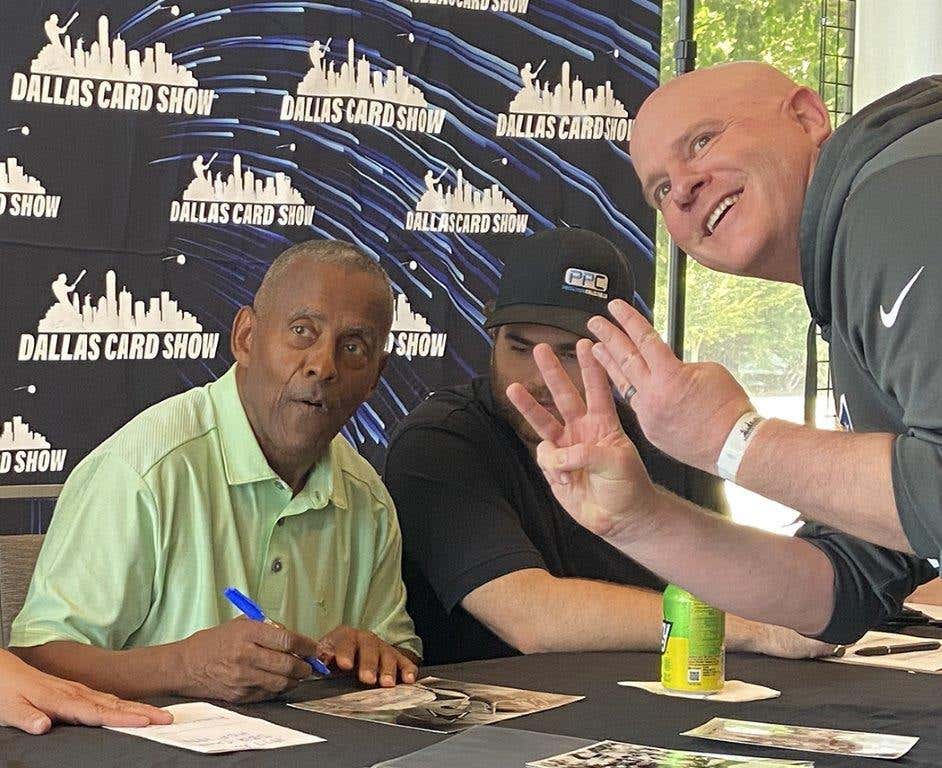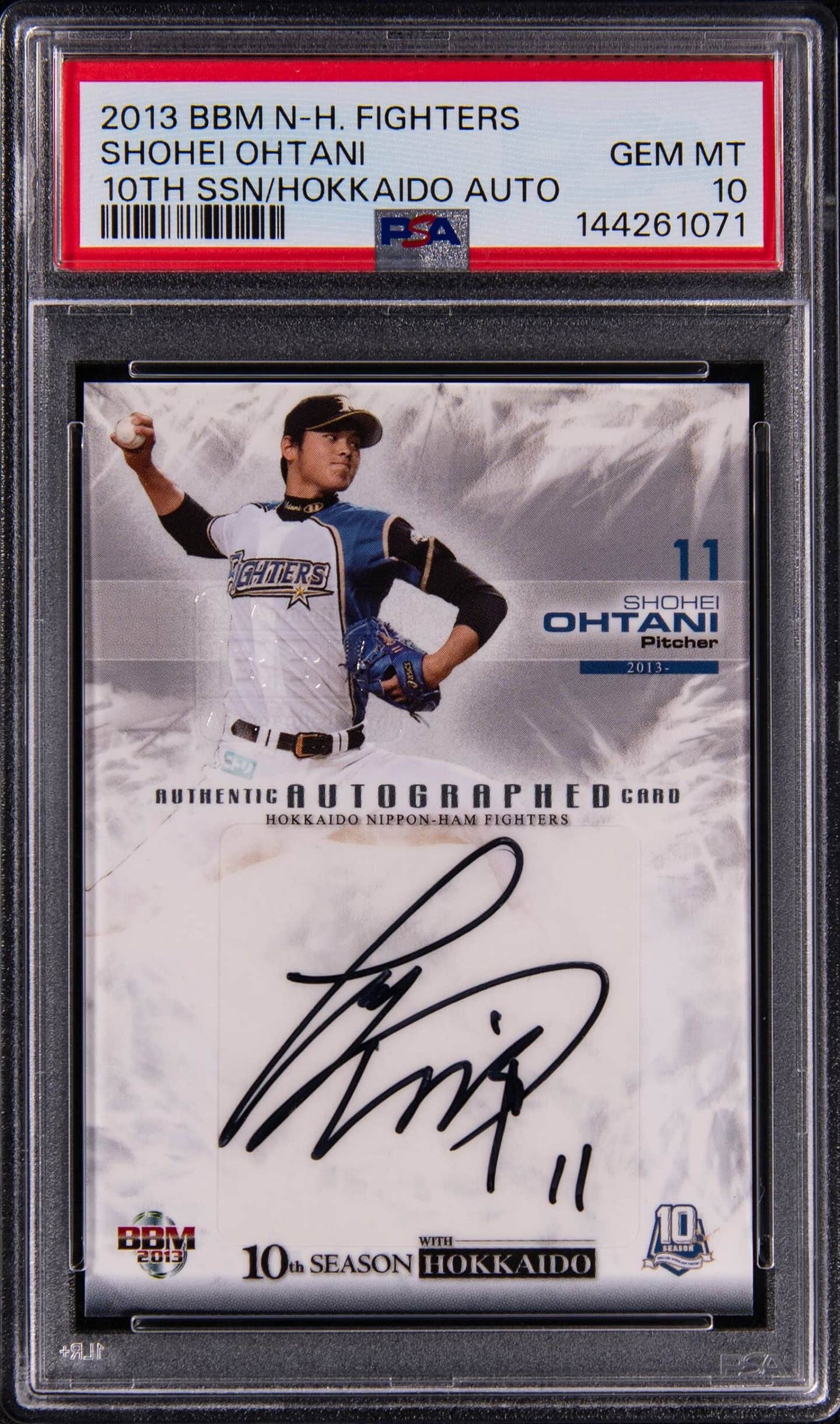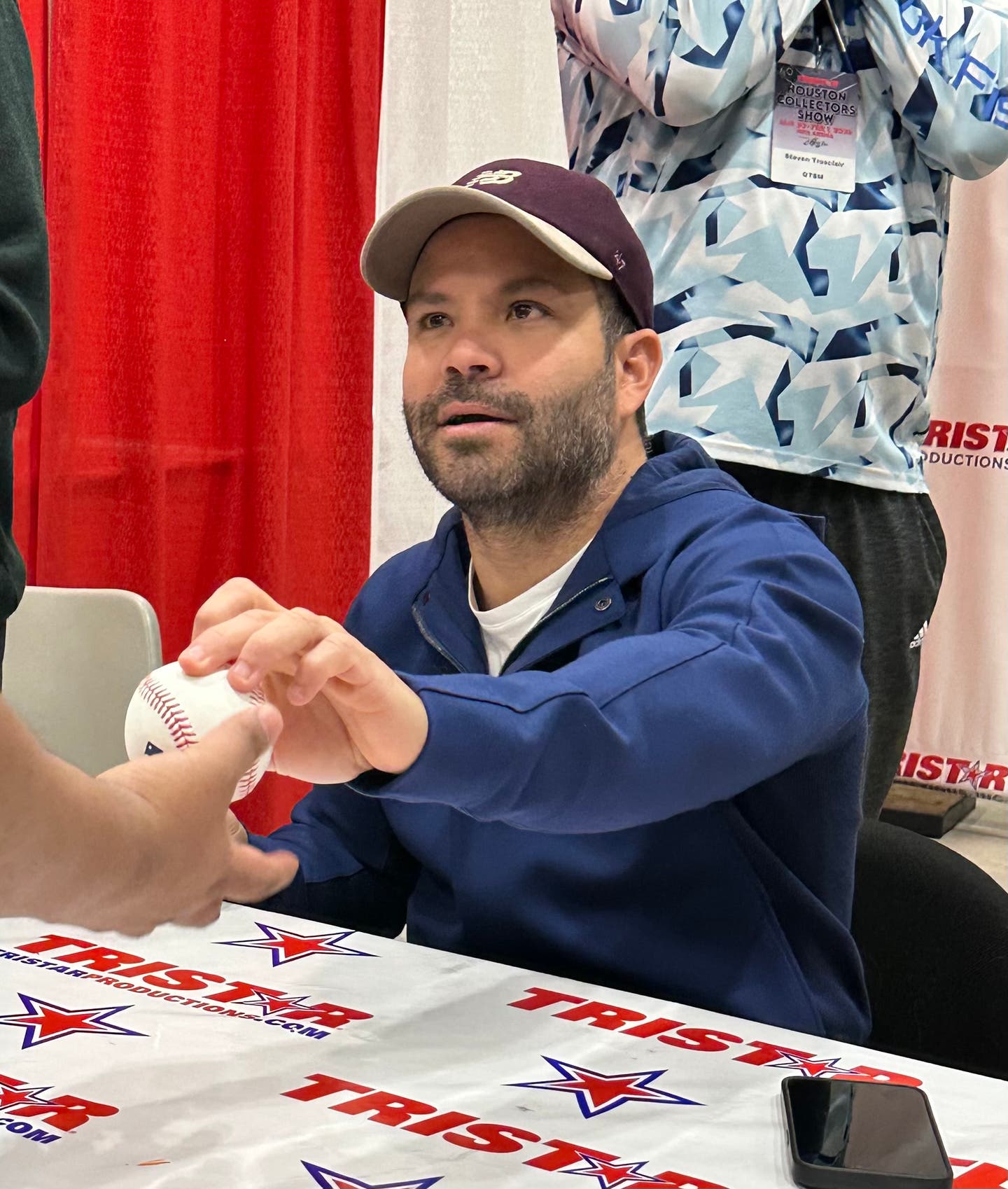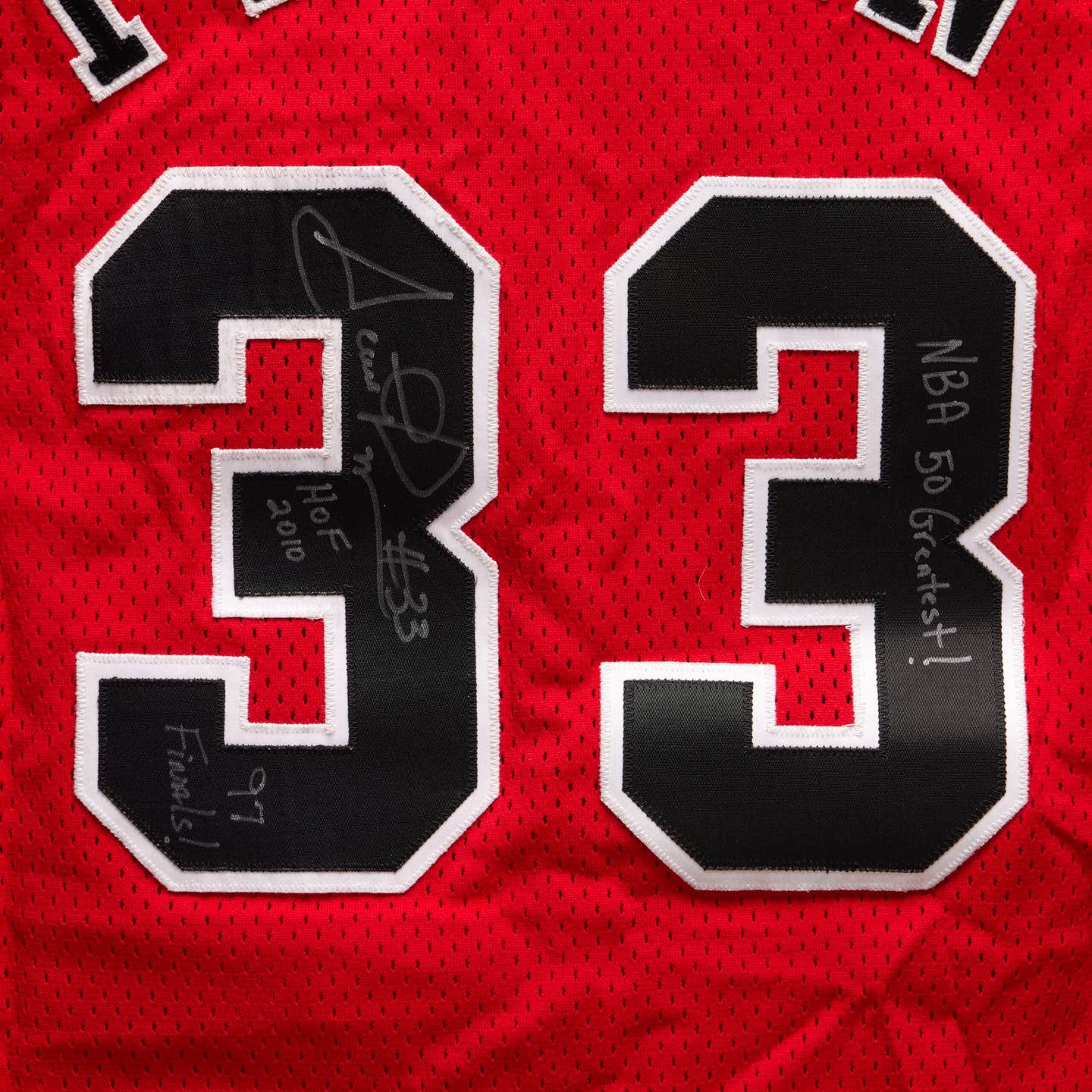Collecting 101
Shuba’s treasures recall 1955 Series win
In its brief write-up on the back of George Shuba's 1953 card, Topps explained that "Shotgun" got his nickname because of his powerful throwing arm. Tidbits from the back of Topps trading cards can carry the force of gospel, but the 81-year-old Shuba laughs and jokingly threatens to hang up on the interviewer when his world-class throwing arm gets mentioned.
"Aww, I think a woman had a better throwing arm than me," Shuba said in a recent interview. One of the last surviving members of the 1955 World Series champion Dodgers, Shuba is selling his personal memorabilia in the upcoming Mastro Sports Auction April 19-21. He delighted in telling stories about his time with one of the most beloved clubs in baseball history.
"I got the nickname in 1945 when I was playing with the Mobile Bears in the Southern Association and Bill Bingham was a sportswriter for the Mobile paper and he gave me the nickname. I didn't care for it too much. It was because I hit line drives all over the field. I was a line-drive hitter.
When I got to Brooklyn all the people would want me to sign 'Shotgun,' so it turned out to be a pretty good nickname."
Shuba's crack about a woman having a better throwing arm echoed other self-deprecating comments made in good fun about his fielding prowess or lack thereof. He had noted from time to time that if Alston had tried to put him out in the field in the 1955 World Series, he might have had 11 guys tackle him before he got out there. That's was one of the stories he told to his 1955 teammates at the reunion last summer in Los Angeles that marked the 50th anniversary of the World Series triumph.
"I think Topps should have sent things out to the players so they could have been checked before they were printed," he said with another laugh. That's an interesting if unrealistic suggestion for the Topps proofreading department, which contributed mightily to hobby lore with gaffe's like Henry Aaron batting left-handed, Lew Burdette doing his best southpaw impression or the batboy posing in place of Auerilio Rodriguez. Presumably sending a proof to prankster Burdette wouldn't have helped much.
"I think maybe since Carl Furillo had such a great arm and he was called "The Reading Rifle," and I was an outfielder, so whoever was writing it figured I must have had a strong arm too, like Furillo," Shuba said.
As Shuba noted above, he was a free swinger who could be counted on to be hacking when he got to the plate. "I was a Bible hitter: Thou shalt not pass. Whenever the ball looked good, I swung at it.
"I was usually the late pinch hitter in the seventh, eighth or ninth inning when the game was on the line," Shuba said. He got his greatest number of at bats when Furillo had trouble with his eyes in 1952, and Shuba ended up hitting .308 with nine homers in 256 at bats.
Shuba retired from Postal Service in Youngstown, Ohio. He owned a sporting goods store for a while before that.
"I am selling my memorabilia now because if something happened to me and people starting going through all of my stuff, they wouldn't know which baseballs belonged to which team, etc.," he continued. "Some of them are from spring training in Bear Mountain, N.Y., during the war years.
My son, Mike, and I got together and started going through the stuff and now he has a good idea about everything."
Atop the list of treasures included in more than three dozen lots of Shuba material: his World Series ring from that historic ballclub. "Even my 1955 World Series ring when we beat the Yankees, I didn't wear it very often," Shuba continued. "I wasn't much for rings, in fact, my wife used to holler at me for not wearing my wedding ring, but I just couldn't stand wearing rings. Once in a while, I would take the World Series ring out of the safe deposit box, like when I wore it to the All-Star Game in Pittsburgh, a reporter from Cleveland wrote about my wearing it to the game, and as soon as I got back I put it away again."
He also recounted the story behind his hitting a pinch-hit World Series homer with a Pee Wee Reese model bat.
"In 1953 during batting practice in Brooklyn, Pee Wee used my bat and liked the way he hit the ball and he ordered some bats with my model number," Shuba said. When they got their World Series bats, Shuba was thinking that maybe the regular players got better wood (literally) in their bats than the substitutes, and thus he borrowed Pee Wee's bat after breaking his own in BP, which, was the same specs as his own.
Shuba hit his homer off Allie Reynolds into the right field stands at Yankee Stadium, and the next day as they came to the stadium, a kid came up to Shuba as he got off the bus. "The kid said, 'Hey, Shuba, I got the ball that you hit into the stands yesterday.'
"I told him to stay put, and I went in to get another ball from the clubhouse man and brought it out to him. And we swapped."
Shuba kept all his memorabilia stowed away in plastic and out of the light. The roster of items also includes a team-issued Dodgers Bombers jacket with the leather sleeves and a number of team-signed balls and photos (see adjacent boxed list).
Shuba also talked about all of the reunion activity that has been connected with that famous ballclub. Shuba, at 81, is the oldest surviving member while Sandy Koufax at 72 is the youngest. "It was nice of the Dodgers to bring us back from the 1955 club. There were 11 of us still alive from the club, and they also brought back Bob Borkowski and Tommy Lasorda, who weren't on the World Series roster," Shuba recalled. "Tommy had to go back to Montreal because Sandy Koufax was a Bonus Baby and they had to keep him on the roster, and Borkowski had been optioned to the minors."
In 1955, Koufax was still years away from the Hall-of-Fame form that would make him one of the most legendary hurlers in baseball history. The same year, as the Dodgers finally wrested a World Series title from the hated Yankees, Jackie Robinson was nearing the end of his fabled career. "The first time I met Jackie was at Daytona Beach in spring training in 1946. He didn't try to impose himself on anybody, he just went about his business. Once we went up to play the minor-league club in Jacksonsville, and they had padlocked the ballpark and we never played the game."
In 1946, Shuba played alongside Robinson in the Hall of Famer's first game in Organized Baseball as Montreal opened the season against the Jersey City Giants on April 18. Bobby Thomson was the Giant's centerfielder in that game.
Shuba batted third behind Robinson, who had four hits in the game, knocked in four runs and scored four times, including an historic three-run homer in the third inning. And in a harbinger of things to come at the major league level, he caused a balk as he dashed toward home plate in the fifth inning, one of two bases he stole that day.
"When he hit the home run, everybody was looking to see if I was going to shake his hand, and of course I did. We were professional ballplayers and we could care less about somebody's color as long as they would help us beat the other team. There was no problem at all with Jackie being on our team in Montreal."
Shuba, who came up to Brooklyn on July 1, 1948, shed some light on one of the most famous incidents from Robinson's tumultuous first year as a Dodger in 1947. "When we were training in Havana that year with the Dodgers, we went down to Panama to play an exhibition game, and there was a rumor going around that some of the ballplayers were trying to get a petition refusing to play with Robinson, but Harold Parrot, the traveling secretary got wind of it. I don't know if it was Kirby Higbe or not, and a few guys signed it, but Pee Wee Reese didn't sign it."
That regard for Reese is a common thread for so many ballplayers of that era, especially old Dodgers and National Leaguers. "When we beat the Yankees in the World Series in 1955, we we're so happy for Pee Wee, because he had played and lost to them so many times," said Shuba.
"Campanella always said that we had a better team in 1953, but 1955 was so special because we finally beat New York, and it took a lot of pressure off Pee Wee when we did." He called Campanella the most important Dodger in those years, noting he handled the pitching wonderfully, had a great arm and had a great temperament.
And like so many of his teammates, the memories of Gil Hodges were no less vivid. "When I first saw Gil Hodges in the shower, I thought he would be a good guy to ride shotgun on a stagecoach," Shuba said. "He was just so powerful. He had great power and was one of the best fielding first basemen for a right-hander. And he hit a lot of home runs in Brooklyn."
But Shuba really gets in gear when discussing one of his fellow subs on that ballclub, Sandy Amoros. "The catch that Sandy Amoros made made us world champions," he insisted. Shuba had been in to pinch hit for Don Zimmer in the fifth inning, grounding out in his sole World Series at bat that year. In the bottom of the sixth, Amoros was sent out to left field as a defensive replacement.
"Yogi was hitting and we we're shading him to hit to right field. He hit it down the left field line, and Sandy caught it a few feet from the fence. And Amoros doubled McDougald at first.
"As far as I am concerned, the catch that Sandy made was more important than the one Willie Mays made off of Vic Wertz at the Polo Grounds the year before," Shuba continued. "It was also a great catch, but Sandy's, if he doesn't make the catch, we would not have been World Series champs. And he never got the publicity that he deserved for it."
Shuba elaborates on that topic in his latest project: He's working on a book and looking for a publisher. George 'Shotgun' Shuba Reminisces is the working title. And he has a pile of photos for the book as well.
Shuba will sign autographs sent to Baseplate, 3409 Allendale, Youngstown, Ohio 44511, phone (330) 506-1122. There is a flat $30 fee for any item, and, of course, adequate return postage and mailing container must be included with the request.




